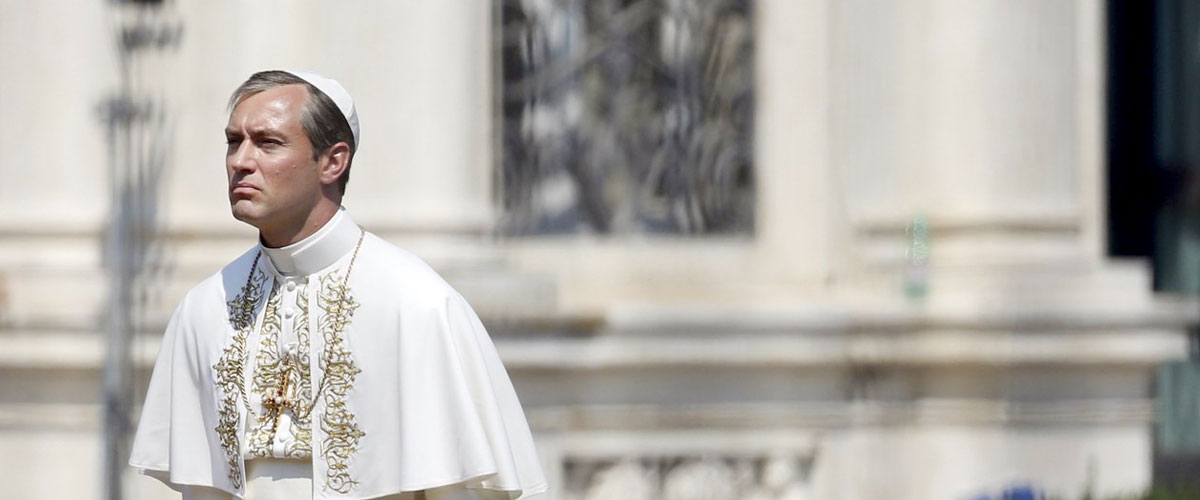I always feel pretty righteous if I can pull a four or five
film day at a film festival, particularly at my advanced age. I also have a
semi-firm belief that no matter how passionate you are, or claim to be, about
cinema, you kind of stop seeing a bit after five films. In any event, Saturday,
September 3 was a four-film day for me, but I’m only writing here about one of
them—the others are for my installments about the Bienalle College
pictures and the restorations/revivals at the Festival.
My relationship to the work of Italian director Paolo
Sorrentino has evolved over the past ten years, into a guarded respect but
still not love. I remember hating with a passion “L’amico di famiglia” on
seeing it at Cannes in 2006, finding it a snarky exercise by a director who’d
learned all the wrong things from the Coen Brothers. 2008’s “Il Divo,” about
the reign of Italian politician Giulio Andreotti, struck me as perverse: the
actual events of Andreotti’s career were sufficiently outlandish that
Sorrentino scarcely needed to turn the story into even more of a cartoon, but
that’s what he did, and he turned out a tone-deaf cartoon at that. “This Must
Be The Place” (2012), starring Sean Penn as a Robert-Smith-look-alike rock star turned
Nazi hunter was slightly better than it sounds. I connected well with the high
style of 2013’s “The Great Beauty;” the only speed bump there was that it
seemed to want me to take the poor character of its “decadent” protagonists a
little more seriously than their flaws actually warranted. 2015’s “Youth” was
quite a bit sillier, and not entirely saved by generous performances from
Michael Caine, Harvey Keitel, Paul Dano and Jane Fonda.
Which brings us to “The Young Pope,” my 8:30 a.m. movie
today. Which is not actually a movie but the first two episodes of a
mini-series by Sorrentino, starring Jude Law as the improbable American Pope
yclept Lenny Belardo, who has taken the name Pius XIII, and Diane Keaton as his
childhood parent substitute, now papal aide-de-camp, Sister Mary. I’ve heard
that Sorrentino had actually initially conceived this as a feature film, but
couldn’t get it made as such; once reconfigured as a mini-series, it found
eager European and American backing. It’s a strange world in today’s business
we call show.
The Vatican and its intrigues would seem a perfect setting
for Sorrentino’s baroque cinematic stylings, and there are portions of “The
Young Pope” that are breathtakingly cheeky, as when Lenny, I mean His Holiness,
breaks the Vatican’s no smoking rule because he is, you know, the Pope. But the
writing, despite its flashes of exceptionally witty dialogue (the way Lenny
lays into a Vatican merchandising manager who humblebrags that she got her
Masters at Harvard will be requited by Ivy League skeptics the world over),
often lacks, and lacks hard. The series begins with Lenny already elected Pope,
and agonizing over the homily he is required to deliver to the faithful. As he
dithers, plays politics, and purposefully alienates pretty much everyone in his
orbit, beginning with his orders to his household staff to deliver him a Cherry
Coke Zero for breakfast, the other players of Vatican City express concern. The
Vatican’s Secretary of State, Voiello (Silvio Orlando) orders an investigation
of the new Pope. Which is weird, because in a prior scene it’s stated that
Voiello is responsible for Lenny being Pope in the first place, having
maneuvered the vote in Lenny’s favor against on Cardinal Michael Spencer (James
Cromwell) who had been Lenny’s mentor in the priesthood. That the Secretary of
State of the Vatican would push for a Papal candidate without knowing quite a
bit about that candidates past is, as Wallace Shawn says in “The Princess
Bride,” “inconceivable.” But such are the dictates of mini-series storytelling,
maybe? At least to Sorrentino. If you name your project “The Young Pope” I
guess it follows that he’s gotta be Pope in the first episode. And yet. It
still makes no sense.
The movie also indicated that the mini-series may have some
trouble setting up the kind of “relatable” or “rooting interest” characters
that today’s aficionados of “peak TV” (critics, in other words) are so besotted
of. Also, there’s not much sex. Although
there are certain indications that there may be more. I’m interested enough
that I’m going to look at the rest of the series when it hits HBO, but I’m
still wary.
To read the rest of Glenn Kenny’s coverage from the 2016 Venice Film Festival, click here.












